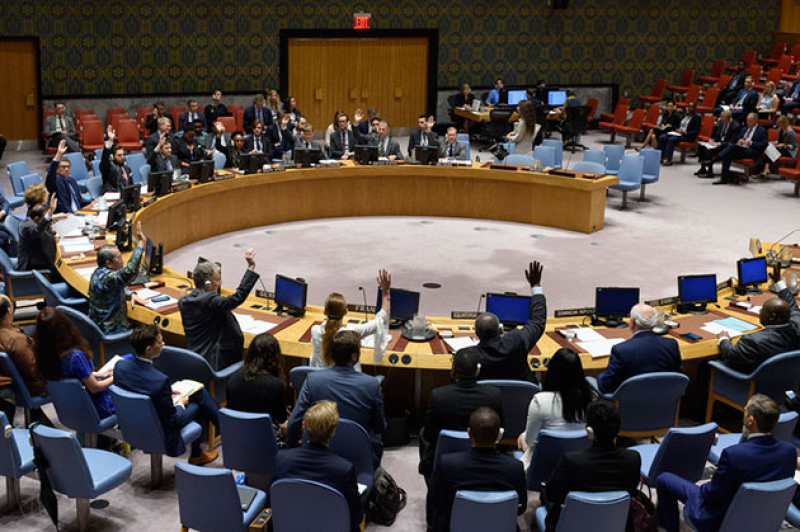- Reported massacre at hospital in Sudan’s El Fasher leaves 460 dead |
- DSE to complete IPO process within 6 months: MD |
- Prof Yunus asks for simplifying reform report for people |
- Forces from inside-outside may work to thwart polls: Prof Yunus |
- NCC for referendum, after July Charter order promulgation |
UN at 80: Renewed Calls for Security Council Reform Grow

Credit: UN Photo
In June 2025, the international community celebrated the 80th anniversary of the signing of the United Nations Charter. On 24 October, UN Day marked its ratification — an opportune moment to reflect on how far the world has come and the challenges that remain.
Countries of the Global South, in particular, find themselves at a critical juncture as they experience firsthand the shifts within the multilateral system and bear the brunt of its shortcomings.
The UN Charter, the founding document of the United Nations, affirmed belief in a multilateral system and established an international organisation dedicated to preventing future suffering in a post–World War context. The UN Security Council, one of the principal organs created by the Charter and tasked primarily with maintaining peace, became the cornerstone of the global peace and security framework.
Comprising five permanent members — China, France, Russia, the United Kingdom, and the United States — with veto power, and 10 non-permanent members elected for two-year terms, the Council has long reflected a power imbalance that perpetuates historical injustices.
Today, the world is not as it was in 1945. Escalating conflicts — from Ukraine to Gaza to Sudan — unprecedented global security threats, and rapidly shifting geopolitics are challenging the ideals that underpinned the UN’s founding.
Given the Council’s critical mandate and the far-reaching consequences of its decisions — and inaction — the question arises: Is the Security Council equipped to meet evolving challenges and retain legitimacy?
For many, the answer is “No.”
The L.69 Group, a diverse coalition of developing countries from Africa, Latin America and the Caribbean, Asia, and the Pacific, views reform as both urgent and essential. The group calls for comprehensive reform of the Council, including expansion of both permanent and non-permanent membership.
Developing countries — home to the majority of the world’s population and often on the frontlines of global crises — remain unrepresented and underrepresented. The power to influence war and peace, enforce international law, determine which injustices are condemned or ignored, and decide where humanitarian aid is delivered should not rest solely with a handful of powers — many with colonial pasts.
Excluding the voices of those most affected by conflict is not only unjust but also dangerous.
Although discussions on Security Council reform have been ongoing for decades, the need for action remains urgent. The only successful reform occurred in 1965, when the Council expanded from 11 to 15 members.
The case is clear: just as the world has evolved, so too must the Security Council. Reform is essential not only to reflect today’s geopolitical realities but also to uphold the UN’s foundational promise — to ensure peace, dignity, and equality for all.
The question now is not whether the Security Council will be reformed, but whether it will happen in time to preserve its relevance.

